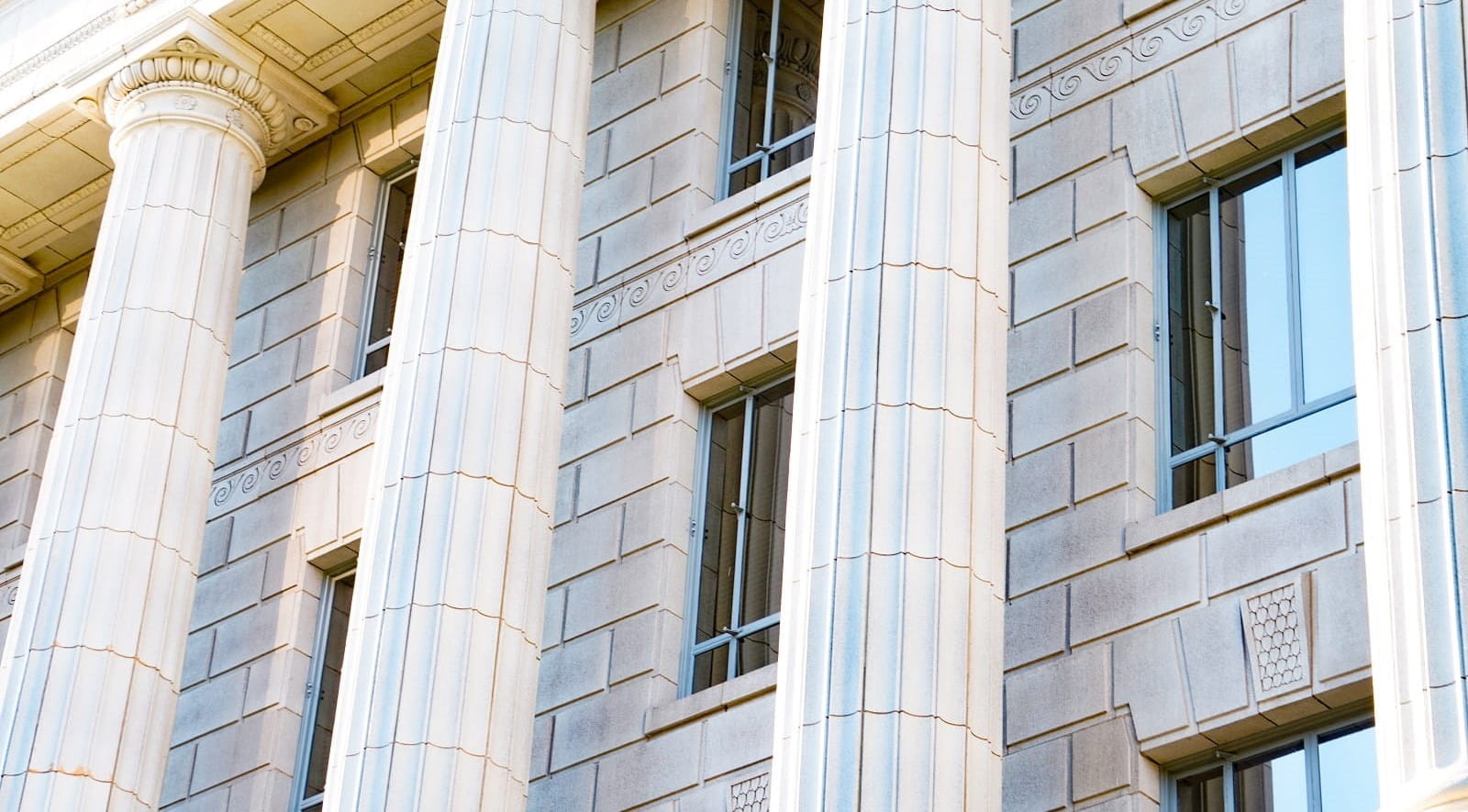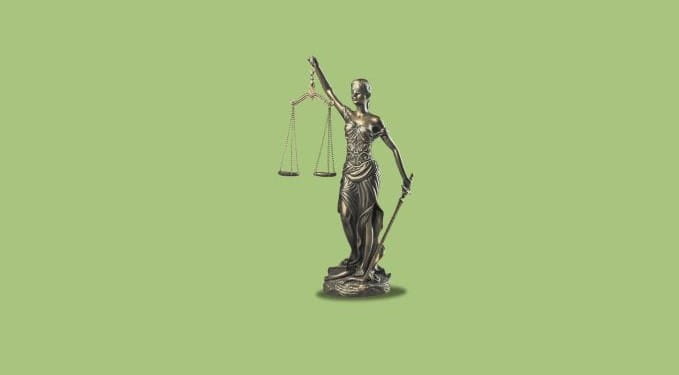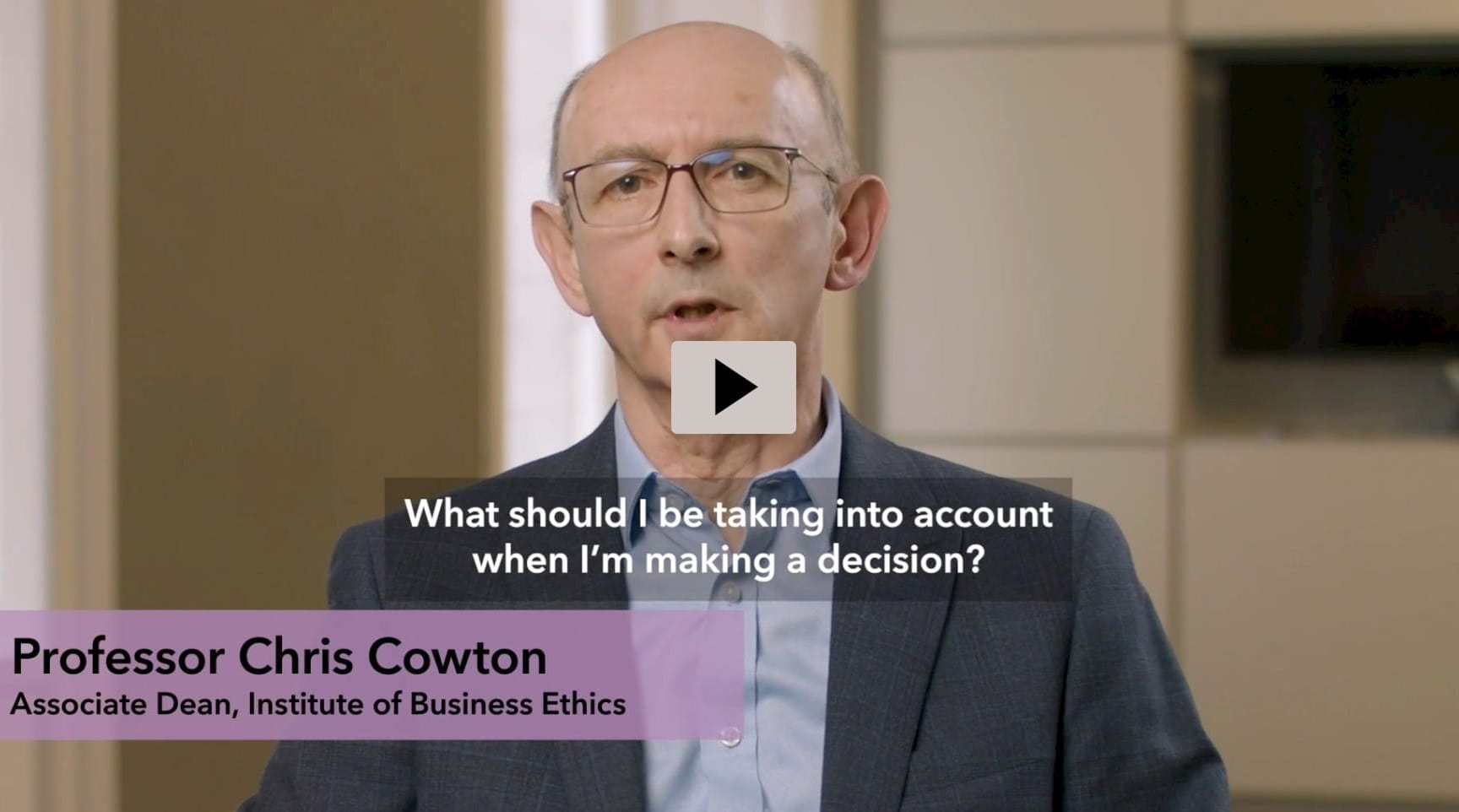Ethical decision making begins with understanding what ethics are, explains ICAEW Council and Ethics Standards Committee member Vicky Andrew. At their most basic level, she defines ethics as “a set of principles that govern our behaviour”.
In her main role, Andrew is Principal at Millcove Solutions, a firm that advises small businesses, including small accountancy practices. “On a personal level, it’s about being able to sleep at night – which applies to clients as much as accountants. Peace of mind is an important part of what the relationship should deliver,” she says.
“Ethics provide us with a framework for decision making. You can’t cover every eventuality with a set of rules – but a well-considered framework can channel you in the right direction.”
As a fundamental part of their responsibilities, accountants should encourage their business clients to act ethically, Andrew says. In terms of scale, while medium-sized firms and larger corporates would tend to implement a code of conduct as well as a code of ethics, smaller companies would typically combine the two.
“Small businesses and practices aren’t large enough to have extensive policies and procedures,” Andrew explains. “I encourage owners to draft up a one-page mission statement that will set the ethical tone for their company.”
Andrew strongly recommends the tools and resources available from the Institute of Business Ethics (IBE). “For small businesses, the IBE’s Knowledge Hub provides excellent guidance on which processes, procedures and controls to adopt and abide by.”
Tangible actions
Any discussion of business ethics invariably turns to questions around competitiveness, particularly whether observing ethical principles acts as a drag on companies’ dynamism and, by extension, whether less ethically driven companies have an automatic edge.
Trust & Ethics
ICAEW guidance and resources on key issues, including economic crime, business law, better regulation and ethics.

“If you point out that insurance issues are beginning to spring up at businesses that don’t have environmental, social and governance (ESG) policies, thereby affecting those companies’ resilience, owners will sit up and take notice,” says Andrew.
Stakeholders are increasingly assessing businesses on their ethical credentials. In a recent survey, Andrew points out, the IBE found that a whole list of areas is under examination, from sustainability and tax avoidance to employee wellbeing. But head and shoulders above the rest is the extent to which owners are hardwiring ethical practices into their organisations.
“Businesses should be able to say – and prove – ‘This is what we’re actually doing,’” she says. “In other words, it’s not just a page on their website. Owners must embed evidence of any tangible actions they’re taking in all their branding and promotional materials as a key part of their company’s messaging.”
One classic tool for ensuring that a company’s values system applies equally to all employees, she points out, is training. Whether you are addressing a small business with a tight-knit group of staff, or a larger one with a layer of middle-managers, the goal is to set up procedures that enable culture not just to trickle down, but to be understood and implemented consistently.
“Leaders may highlight the need to align with a certain ethical position, but middle-managers say to themselves, ‘Well, in the end, we’re still going to be judged on profit,’ and they interpret the message through that lens. Training should flatten out those inconsistencies and ensure that everyone is pulling in the same direction.”
Under duress
In Andrew’s assessment, the underlying reason why egregious behaviour persists in the business world is simple: overzealous service of the profit motive.
“The profit motive can sometimes feed into tax avoidance, which is broadly legitimate, and tax evasion, which is not, and the lines between them can blur. So overall, the profit drive can lead line managers to put staff under duress, particularly if they think they are being evaluated on purely financial KPIs.”
With that in mind, Andrew says, accountants play a vital role in helping to keep companies honest. “In an advisory capacity, always call out poor behaviour when you see it. You may lose assignments, but it comes back to being able to sleep at night.”
Whistleblowing policies are also key. Small companies might think they won’t need one, but Andrew suggests that one-or-two-man bands with few supporting staff could include a relevant provision in their one-page mission statement. “Organisations of any size must be able to tell staff clearly: ‘Here’s a channel you must use if you need to raise any concerns.’”
Built-in standards
Andrew herself has found it necessary to decline requests to compromise her ethics, citing numerous clients who have put her under pressure to produce two sets of accounts: one for the bank, and another for HMRC.
“I’m staggered by the number of times that clients have tried that on,” she says. “Every time, my answer has been, ‘Look, I know why you’ve picked me, here – it’s because I’m a member of a respected, professional body with built-in standards.’ That tends to signal to those clients that I know what they’re attempting to do and will not rubber-stamp it.”
Two very different examples of how clients have approached the moral maze stand out from Andrew’s career. She says: “It once came to my attention that a client was running two sales-invoice books: one that they were putting through accounting records, which came to me, and another that they were not declaring.” In an examination of the records of companies that traded with that client, HMRC uncovered sales data that failed to match with that provided in the declared book.
In the second example, the clients were on the opposite end of the spectrum. “I was advising husband-and-wife owners who were both very religious,” Andrew says. “They refused the standard accounting formula of minimising salary and maximising dividends – which is not as advantageous as it once was but is still a perfectly legitimate tax planning strategy. In their view, it was their duty to maximise tax payments to HMRC and that helped them sleep at night. I could only respect that.”
The majority of professionals consider the ethical clout as part of the honour of being chartered accountants, she says. “It’s vital to keep this terrain on your radar at all times,” she says. With the new CPD requirements, she adds, “that will be easier for us all, soon.”
Global Ethics Day
Global Ethics Day 2024 focused on using the power of ethics to build a better world. ICAEW examined the vital role ethics must play in the use of technology in accountancy.




